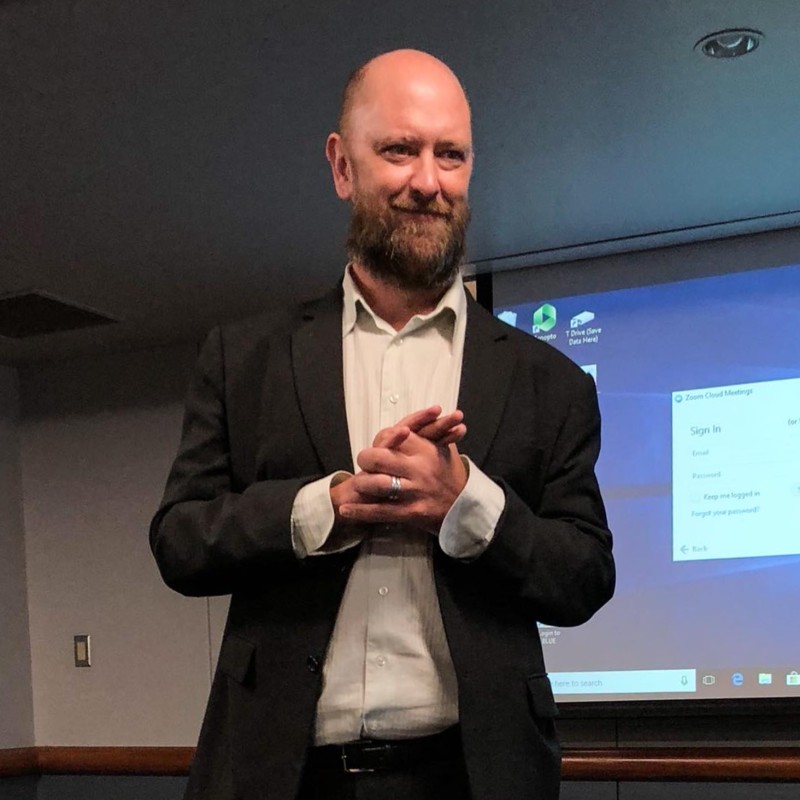Professor Andrew Gustafson is not your typical business ethics professor. He is also a real estate entrepreneur who has a passion for restoring old and dilapidated houses, as well as providing employment and dignity to homeless people and others in need.
Gustafson, who teaches at the Heider College of Business at Creighton University in Omaha, Nebraska, has a PhD in philosophy and a keen interest in the relationship between business, faith, and the common good. He believes that every function of business – from marketing to finance – has the power to transform culture and society. He has found a small way to do this with his own business, Communion Properties, which he started in 1999 while he was studying for his PhD at Bethel College.
His first real estate project came about when he had a ‘mid-life crisis’ of sorts, because he was nearly 30 and he felt all he had ‘created’ was a stack of research papers. He needed also to do something less cerebral and more connected to physical reality, and he was looking for a way to maintain ties with his hometown of Aurora, Nebraska.

He bought a house for $15,000 in Aurora and transformed it into his first rental property. He really enjoyed the process and the reward of restoring a decrepit building into a home. He says there is a ‘redemptive’ quality to the work—and he sees his work renewing these buildings as being in line and in the spirit of God’s desire to renew and redeem creation. He went on to purchase, rehab and manage seven more rental homes within his hometown.
After completing his studies, he moved to Omaha for the position he now has at Creighton. He and his wife decided to live near school, Gifford Park, which was known 10 years ago as a not-ideal neighborhood, with occasional knife-fights, prostitutes, and shootings. The first house he bought there was a triplex that had been previously known for drugs and dog fighting in the basement. He recalls meeting a guy who was living in his truck behind one of the abandoned houses that he bought. He offered him a place to stay in the house, which had heat and plumbing, and the man accepted. He also started helping the professor in restoring other houses for 13 years until he died. The professor now has 22 homes in Omaha.
One of the most rewarding things beyond the redemption aspect of rehabbing buildings is that owning this business has given him the chance to provide employment to people who are marginalized or dealing with various struggles. “We have several different people who work for us. They’re not all homeless, by any means. But there are people who are kind of on the fringes, and we provide help,” explains Gustafson. “We buy buildings, a lot of them have been abandoned or maybe condemned by the city, and we fix them up, renovate them and then rent them out. And that’s also providing other sorts of opportunities for us to restore other lives.”
He feels blessed to have a well-integrated life where his day job and his ‘hobby’ of transforming homes and lives are aligned. “I think that work helps get closer to what people really thirst for, the need to be fully human. That’s what people need,” continues the professor. “They need to do stuff and to have a project and to be proud of that. If they don’t have anything to get up for in the morning, they sit in the park all day drinking alcohol with their buddies.”
Since 2020, he is also a member of the Economy of Communion (EoC), a network of businesses that share their profits with the poor and promote a culture of solidarity and reciprocity. Inspired by this network, he launched an MBA class at Creighton called Business, Faith and the Common Good. He also founded an institute with the same name, which aims to “promote discussion, collaboration, and research that help understand the relationship between business and faith, and how business can contribute to the common good.”
As a business ethics professor at Creighton, he shares his experience of managing his business endeavors with his students. He says, “Pretty often managers think about ‘how do I keep this person from leaving?’ Instead, a good manager helps people become really, really good and even if they go somewhere else, they will be loyal because they know you’re the one who helped them achieve what they are now.”












